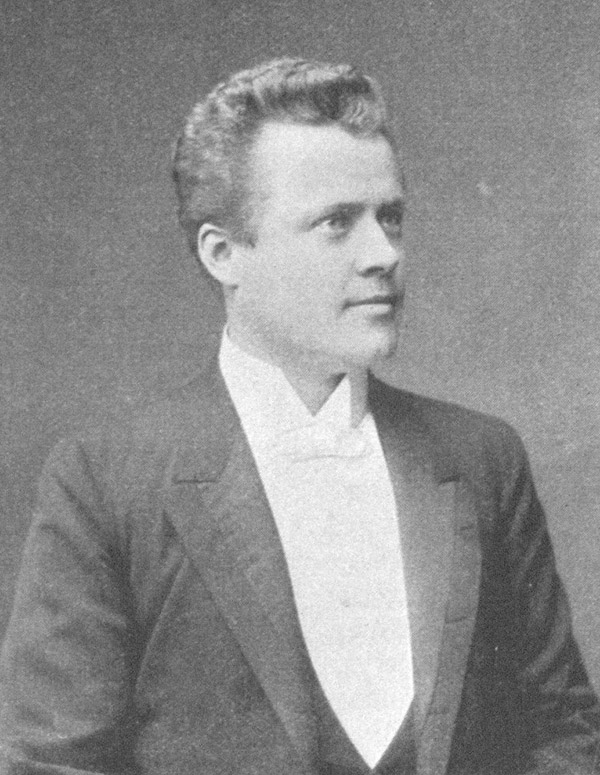Fritz Schrödter studied art in Düsseldorf
and then voice in Köln. He began his career as an operetta tenor in
Northern Germany. During a guest engagement at the Friedrich-Wilhelmstädtisches Theater in Berlin, he was heard by
Johann Strauß, who
arranged an engagement for him at the National Theater in Budapest in
1876. He sang operetta in Vienna in 1877 and then went to Prague for
training in the operatic repertory. He made his operatic debut in 1879
at the German Theater in Prague. Schrödter was a guest at Covent
Garden in 1884 and joined the Vienna Hofoper in 1886. He would remain
a member of that company until 1915. He was the father-in-law of the great
Czech bass Vilém Heš (Wilhelm Hesch).
His repertory was enormous: although he is often considered the predecessor of Arthur Preuss as Vienna's luxury comprimario, and justly so (his most
famous role being David in Meistersinger), he was much more than that. In his 29 years at the Vienna Hofoper, he sang
Canio 126 times, Wilhelm Meister 103 times, Rodolfo 62 times, Manrico 37 times, Lenskij 21 times, Don Ottavio 27 times,
Jeník 77 times, Eisenstein 111 times, Max 68 times, Erik 47 times (but only 7 times Steuermann), José 11 times,
Turiddu 86 times; but of course, also many comprimario parts: David 69 times, Peter Iwanow 39 times, Walther von der
Vogelweide 86 times. All in all, however, he sang way more leading than supporting parts.
Reference 1: Kutsch & Riemens, reference 2: archives of the Vienna Staatsoper, reference 3: Rainer E.
Lotz/Axel Weggen/Christian Zwarg: Discographie der deutschen Gesangsaufnahmen, vol. 3, Bonn 2001
Picture source
